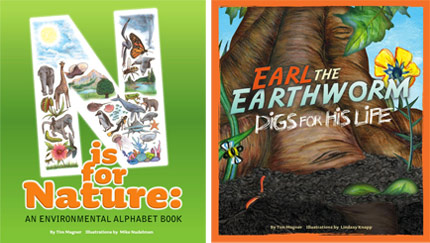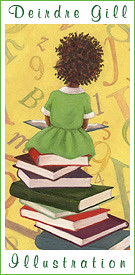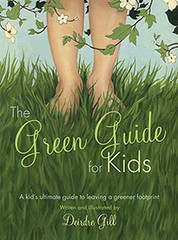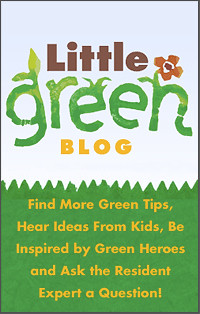
We are back with more questions for author Tim Magner, about two more of his books for young readers: N IS FOR NATURE: AN ENVIRONMENTAL ALPHABET BOOK and EARL THE EARTHWORM DIGS FOR HIS LIFE.
Both of these books aim to teach kids about many of the creatures we share our planet with, even the microscopic ones burrowing right under our feet! In your opinion, why is important that kids learn how other creatures live?
Since the beginning of human history, kids played outside. As part of every normal childhood, kids had plenty of time to wander, investigate and discover. Digging in the dirt and imitating animals gives them a chance to bond with the earth around us. Toddlers can identify with animals (especially young ones) and they grow into explorers who come to understand the connections and see us as a part of nature. Sometimes it's important to remember our roots.
EARL THE EARTHWORM DIGS FOR HIS LIFE teaches us about the amazing work of worms and how we can use them to create compost from our organic waste. Is this something that even city kids can do?
Our Earl story is entertaining in and of itself, but it's also about how, in nature, waste equals food. I love visiting schools and bringing some of my worms. Many of the city kids have never felt worms and can't believe I keep 1,000-plus of them in my kitchen. Vermi-composting is a way to explain nutrient flows and cycles. I'm a big proponent of the benefits of systems thinking over linear thinking and using nature as a model to help us move past the short-term thinking of the Industrial Revolution to a better future.
Your books really encourage kids to get outside and play. What was your favorite game to play outside when you were a kid?
We lived near a golf course and my brothers and I hunted for golf balls in the creeks and ponds. We came home well after sunset, covered in mud. Mom yelled at us. We also got to spend chunks of time in Wisconsin where we played with neighborhood kids, games like kick the can and flashlight tag. Good clean fun means getting dirty.










No comments:
Post a Comment